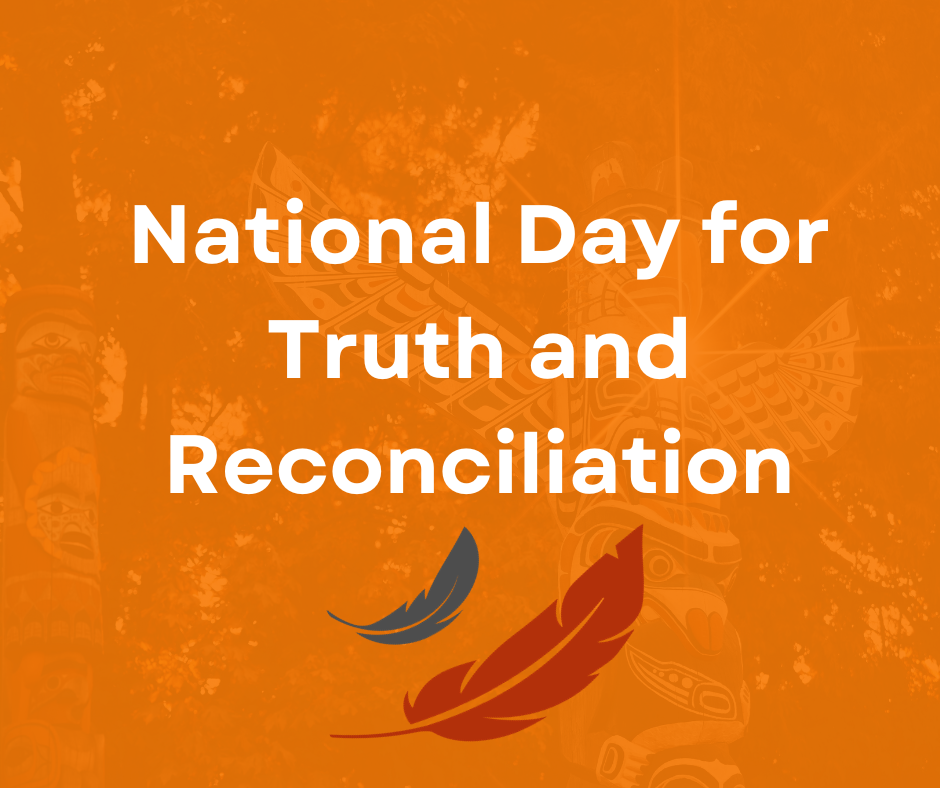Menu
Close

National Day for Truth and Reconciliation – September 30
Sep 26, 2024
By: CMHA-VF IDEA Committee
As we continue the journey toward healing and understanding between Indigenous and non-Indigenous peoples in Canada, it’s vital for each of us to play an active role. The Truth and Reconciliation Commission’s 94 Calls to Action offer a path forward, and today, we’ll highlight key areas in education, health, and reconciliation that can inspire us to engage meaningfully.
- Education: Building Knowledge and Understanding
The Calls to Action emphasize the need for every Canadian to learn the true history of Indigenous peoples, especially the harmful legacy of residential schools. We can support this by:
- Engaging in learning: Take part in educational events, read books, or watch documentaries that focus on Indigenous history, culture, and perspectives.
- Advocating for change: Encourage schools and institutions to integrate Indigenous history and culture into their curriculums so future generations grow up with a more complete understanding.
- Supporting Indigenous language revitalization: Learn about the importance of preserving Indigenous languages and support efforts to promote language education.
2. Health: Addressing Inequality and Promoting Healing
There are significant disparities in healthcare access and outcomes between Indigenous and non-Indigenous peoples. To address this, we can:
- Promote equitable healthcare: Advocate for policies that ensure Indigenous communities have access to quality healthcare, especially in remote areas.
- Support culturally appropriate care: Engage with or support organizations that incorporate traditional Indigenous healing practices and ensure cultural competency in healthcare services.
- Raise awareness of health disparities: Help spread knowledge about the ongoing health challenges Indigenous communities face, from mental health to chronic diseases, and support mental health initiatives, particularly for residential school survivors.
3. Reconciliation: Building Relationships and Taking Action
Reconciliation is about building a future based on mutual respect and understanding. To participate, we can:
- Learn and act: Attend Truth and Reconciliation Day events, participate in workshops, and join conversations that help build awareness and understanding.
- Adopt a reconciliation mindset: Commit to ongoing learning and dialogue, both personally and within your workplace or community, about the impacts of colonialism and the rights of Indigenous peoples.
- Support Indigenous-led initiatives: Whether it’s through cultural events, art, language programs, or community projects, find ways to elevate Indigenous voices and contributions.
We INVITE all CMHA-VF’s stakeholders to take proactive steps to advance your knowledge in experiencing Truth and Reconciliation into your personal and professional lives.